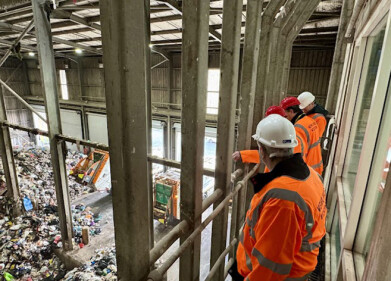Waste management
Should Cigarette Filters Be Banned?
Dec 02 2019
Governments across the world should introduce an outright ban on cigarette filters, according to an editorial published in the British Medical Journal (BMJ) last month. Authored by scientists from the London School of Hygiene and Tropical Medicine, the paper argued that filters not only do nothing to alleviate the worst effects of smoke inhalation, in some cases they could even exacerbate them.
The most concerning aspect of cigarette filters, however, is not their impact on human health, but on the environment. As the most ubiquitous piece of waste across the world according to some estimates, cigarette butts are a key contributor to the mounting problem of plastic waste all over the globe. Therefore, there is no reason why they shouldn’t be outlawed, say the researchers.
A controversial history
It seems that filters were first introduced by cigarette companies in the 1950s as a legitimate attempt to make smoking healthier. However, it soon became clear that while the filters might block larger particles of tar and other damaging chemicals from reaching human lungs, they did nothing to inhibit the path of smaller particles. What’s more, the smoothness of the sensation they produce may well encourage smokers to inhale greater quantities, thus having an overall detrimental effect.
Despite these findings, the tobacco industry was unsurprisingly reticent about disclosing them to the unsuspecting public. Instead, they introduced all kinds of innovations designed to trick customers into thinking filters were good for them, such as butts that became discoloured after use or those containing tiny porous holes. Only recently have governments made moves to ban the branding of such cigarettes as “mild”, “low-tar” or “light”.
A plastic pariah
As well as potentially damaging human health, cigarette filters are certainly harming the environment. Those constructed from cellulose acetate are capable of degrading within a few months in the right conditions, but since those conditions are virtually never met, it’s more likely that they will take around a decade to decompose.
They’re now the most commonly collected piece of trash all over the planet, causing an unsightly eyesore wherever they’re seen. But as well as being aesthetically ugly, they’re also highly dangerous, posing a tangible threat to ecosystems and organisms in the surrounding environment.
Escaping scot-free
Despite these facts, the tobacco industry has largely escaped the outrage that has faced other proponents of single-use plastics, such as fast food companies and coffee manufacturers. The authors of the BMJ report are calling for that to come to an end with the introduction of a total ban on filters. Although the move might seem drastic and difficult to implement, the researchers pointed to the massive changes that have impacted packaging in the last decade as precedent.
“It may be time for a similar radical approach that strengthens ties between the environment and health communities for the common planetary good,” they argue. “If we fail to reduce the trillions of butts added to the world’s waste burden annually, we undermine our efforts to curb global plastic waste and miss an opportunity to help end the global tobacco epidemic.”
Events
Apr 15 2025 Moscow, Russia
Apr 21 2025 Shanghai, China
May 11 2025 Vienna, Austria
May 18 2025 Algiers, Algeria
23rd International Water Management Exhibition
May 20 2025 Prague, Czech Republic














